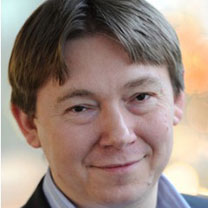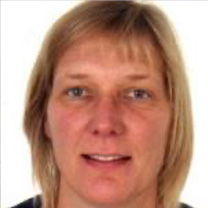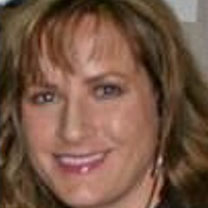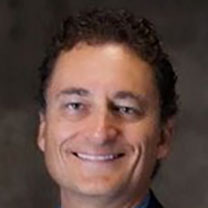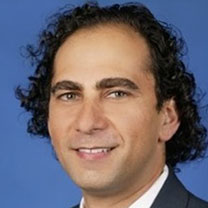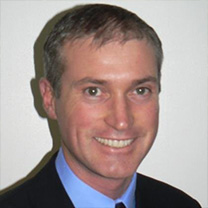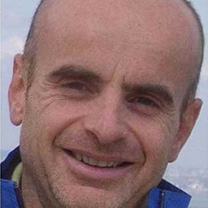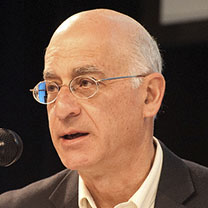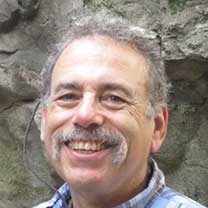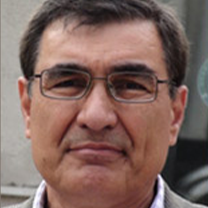2022
Industry professionals demonstrating passion, dedication, commitment, and contribution.
At MEF, we recognize the individuals who have demonstrated passion, dedication, and commitment towards advancing MEF work. Their contributions are critical to the overall development of MEF and its value to our industry.
Thank you to these individuals and their supporting member organizations.
Each year, MEF recognizes the elite group of individuals who have demonstrated exceptional professional excellence and leadership in advancing MEF work. We consider contributions to MEF products, ad-hoc projects, marketing and education, collaboration with open-source and industry-standards groups, and other MEF initiatives.
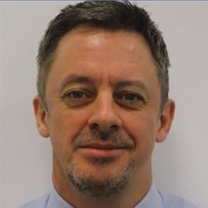

Aidan Anderson
AT&T
Instrumental in multiple LSO implementations and champion for MEF at AT&T, both driving membership growth and adoption


Neil Danilowicz
Principal Architect,
Versa
Editor: MEF 117; Contributor: W70.2, W105, W118, W138, W119
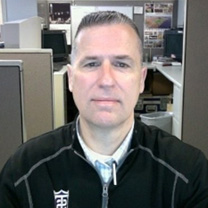

Jack Pugaczewski
Distinguished Architect,
Lumen
Editor MEF W130, 82.1, 100, 102, 112, 133; Contributor: innumerable LSO projects.
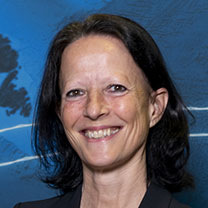

Antonella Sanguineti
Head of PM Secure Cloud & Networking Solutions,
Sparkle
Antonella has throughout 2022 led the evolution and development of the Integrated Trust Network (ITN) from a MEF perspective working in close cooperation with MOBI. By year end 2022 ITN spans a total of 15 node operators from 3 diverse ecosystems (telecom, mobility, and insurance) representing hundreds of billions in revenue.


Ralph Santitoro
Director of Product Line Management - Multicloud Networking Solutions,
Ciena
Editor: MEF 118 Contributor: W70.2, W132, W138, W117
Each year, MEF recognizes individuals who have demonstrated professional excellence in advancing MEF work with significant and consistent contributions over the past year. We consider contributions to MEF products, ad-hoc projects, marketing and education, collaboration with open source and industry standards groups, and other MEF initiatives.
2022
David Ball
Cisco
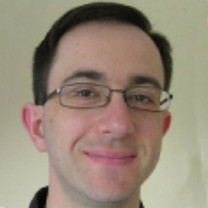

David Ball
Principal Engineer,
Cisco
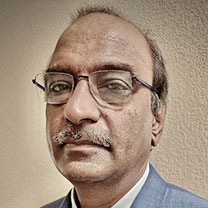

Sankar Ramamoorthi
System Architect - Network Cloud,
IBM
Contributor: 117, W138, W105, W119
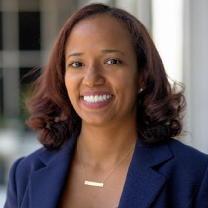

Miguelina Rios
Bloomberg
Contributor: LSO Cantata-Sonata Product Catalog (127), LSO Sonata Trouble Ticketing (113), driving industry adoption
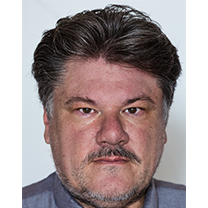

Patrick Roosen
Proximus
Contributor on many projects including 79.1, 57.2, 80, 87, 115, 121, 122, 123, 124, 127, 134, 141, 142
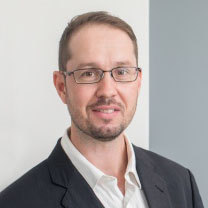

Nico Walters
CMC Networks
Editor: MEF 118; Market leadership in the Africa


Rick Zwiep
Product Manager,
Telus
Contributor: 82.1, 100, 101, 102, 112, 127, 123, 124, 134, 141, 142
MEF’s products are defined in its standards and each standard is shepherded through its evolution, from concept to ratified-industry standard, by its editor(s). From organizing calls to reconciling each and every comment and concern, the editor’s task can be daunting. Each year, MEF recognizes these individuals who have taken on this challenging role in leading the creation of MEF standards.
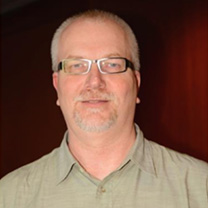

Mike Bencheck
Spirent
MEF 57.2: Product Order Management Business Requirements and Use Cases
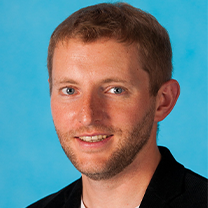

Michał Łączyński
Solution Architect,
Amartus
MEF 87 – LSO Cantata and LSO Sonata Product Offering Qualification API Developer Guide
MEF 115 – LSO Cantata and LSO Sonata Quote Management API Developer Guide
MEF 116 – LSO Cantata and LSO Sonata Product Inventory Management API Developer Guide
MEF 121 – LSO Cantata and LSO Sonata Address Management API Developer Guide
MEF 122 – LSO Cantata and LSO Sonata Site Management API Developer Guide
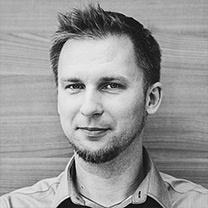

Bartosz Michalik
Amartus
MEF 87 – LSO Cantata and LSO Sonata Product Offering Qualification API Developer Guide
MEF 115 – LSO Cantata and LSO Sonata Quote Management API Developer Guide
MEF 116 – LSO Cantata and LSO Sonata Product Inventory Management API Developer Guide
MEF 121 – LSO Cantata and LSO Sonata Address Management API Developer Guide
MEF 122 – LSO Cantata and LSO Sonata Site Management API Developer Guide


Jack Pugaczewski
Lumen
MEF 112: MEF Services Model: Information Model for IP/IPVPN
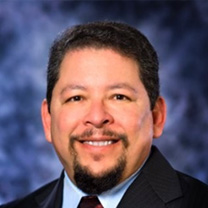

John Strassner
Futurewei
MEF 95.0.1: Amendment to Policy Driven Orchestration
The MEF Distinguished Fellow Award is given each year to an exceptional individual who has, over time, provided a major contribution to the development, adoption, and impact of MEF’s works.
Awarded MEF Distinguished Fellows Receive


Isabelle Morency
Head of Engineering & Standards,
Iometrix
Isabelle has been working in the telecommunication industry for over 20 years. She has been actively contributing to the MEF Technical and Certification committees since 2005 and served has editor of multiple technical specifications: MEF 14 (Abstract Test Suite for Traffic Management Phase 1), MEF 19 (Abstract Test Suite for UNI Type 1), MEF 21 (Abstract Test Suite for UNI Type 2 – Link OAM), MEF 24 (Abstract Test Suite for UNI Type 2 – ELMI), MEF 25 (Abstract Test Suite for UNI Type 2 – Service OAM), MEF 27 (Abstract Test Suite for UNI Type 2 – Enhanced UNI Attributes and L2CP Handling), MEF 34 (Abstract Test Suite for Ethernet Access Services), MEF 48.1 (Ethernet Service Activation Testing) and MEF 91 Carrier Ethernet Test Requirements). She is currently contributing to MEF 140 (Broadband Access E-Line and Broadband Access E-LAN Services Definitions).
Isabelle has collaborated in the development and success of the MEF CECP professional certification program where she served as a subject matter expert in the development of the CECP 2.0 exam in the areas of Ethernet Services Definitions, Service Operation Administration and Maintenance (SOAM), Quality of Service (QOS) and Network Performance. She also provided training to over five hundred professionals in America, Europe, Africa and Asia.
Furthermore, Isabelle has been an active contributor to the IEEE Conformity Assessment Program where she served as editor of IEEE 1588 Conformity Test Suite for Frequency Synchronization in Telecom Networks. At Broadband Forum, she led the development of TR-247 (Abstract Test Plan for GPON ONU Conformance) and TR-248 (Abstract Test Suite for TDM Services over IP/MPLS).
At Iometrix, Isabelle has developed all the test suites used for MEF CE 1.0 and MEF CE 2.0 Carrier Ethernet Certifications and she led the design and development of the Labinthesky digital Platform used for the MEF CE 3.0 Carrier Ethernet Certifications and for the initial phase of the MEF LSO Certification program.


Mike Bencheck
Spirent
Mike Bencheck has worked in the telecommunications and data communications industry for 35+ years working on many technologies including voice, Voice over IP, SONET, OTN, Ethernet, MPLS, and IPVPN. Mike oversaw the development of systems used for testing customer services within MCI and was key in the early development of Ethernet at MCI. Mike became a part of Verizon Telecommunications with the merger of MCI and Verizon, spending time in the lab as well as developing architectures for SLA measurement for Ethernet, the use of Carrier Ethernet CFM for fault and performance management including running a successful interoperation program that ensured interoperation of CFM between vendors and developing new network devices such as 100G NIDs.
He joined MEF in 2009, becoming a co-chair of the Technical Committee in 2012 through 2015. Mike has been involved in multiple MEF projects in many different areas of work. He has been the editor of MEF 49, MEF 49.0.1, MEF 86, MEF 81, MEF 81.0.1, MEF 66, MEF 67, MEF 79.0.1, MEF 79.0.2, MEF 80, MEF 57.2, MEF 92.1, MEF 105, MEF W119, MEF W132, MEF W150, and MEF W79.1. Recently he has focused on developing Business Requirements and Use Case document for the Sonata/Cantata Interfaces and on new technology within MEF such as Edge Computing Infrastructure as a Service (IaaS).
After retiring from Verizon as a Verizon Fellow in 2014, Mike has been a consultant for several companies including Siama Systems and Spirent.


Jason Wolfe
Sr. Network Architect,
Bell Canada
Jason Wolfe is a Senior Network Architect at Bell Canada where he has been developing network and service architectures for over 20 years. He has been an active participant in MEF since 2006, and served numerous terms as a MEF technical committee co-Chair. During that time Jason personally contributed to more than 40 published MEF standards, helped guide MEF’s expansion beyond its Carrier Ethernet origins, and helped transform MEF’s procedures to facilitate faster, more agile standards development.
Within Bell Canada, Jason has worked in a rage of areas spanning Broadband Access, Optical Transport, Carrier Ethernet, and IP in Bell’s incumbent and competitive territories.
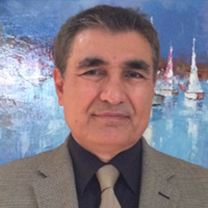

Dr. Mehmet Toy
Associate Fellow, Business Product Engineering,
Verizon
Mehmet holds a Ph.D. in Electrical and Computer Engineering from Stevens Institute of Technology, Hoboken, New Jersey, and a Master’s degree in Electronics and Communications from Istanbul Technical University, Istanbul, Turkey. As an Associate Fellow of Verizon, he represents Verizon Business Products in MEF, ETSI-NFV, ITU-T, CNTT, and LF Edge-Akraino standards organizations. He is involved in the architecture, implementation, testing and standardization of Virtual Network Services, LSO APIs, Multi-Access Edge Computing Services, and Carrier Ethernet Services, as well as the development of AI/ML and Intent-based Networking algorithms.
Prior to joining Verizon, Mehmet held individual contributor and management positions at various levels in start-ups and well-known companies, including AT&T Bell Laboratories, FNCC, Intel, and Comcast. In addition, he held tenure-track Associate and Adjunct Professor positions at universities, including NJIT in NJ, and WPI in MA. He has served in IEEE-USA, IEEE, 3GPP2, ITU, IETF, and IEEE Network Magazine in various capacities for more than three decades, including chairing the ITU-T FGNET2030 Architecture Committee, chairing IEEE ComSoc Cable Networks and Services Committee, and serving in the Open Cloud Connect (OCC) Board.
He has published seven books, a video tutorial, and numerous articles and standards contributions in computer networking; he has also delivered keynote speeches in IEEE conferences and MEF19. Two of his books have been used as college textbooks and one has been translated into Turkish. He holds fifteen patents, issued or pending. For his contributions, he has received multiple outstanding contributor, innovator, and leadership awards from Bell Labs, Comcast, Verizon, and IEEE-USA.
Mehmet has been serving in MEF since 2008. During this period, he has represented Verizon, Comcast, and ADVA in Services, LSO, and Marketing Committees. He has made numerous contributions to MEF in various areas, including LSO Reference Architecture, Elastic Carrier Ethernet Services and Interlude interface, Cloud Services Architecture, SD-WAN, Service-OAM, Information Modeling, MIB, and Performance.


John Strassner
CTO and VP, Standards and Industry Development,
Futurewei
Dr. John Strassner is a CTO and Vice President of Futurewei Technologies, where he works on AI and software architecture projects. He is Futurewei’s principal representative for the MEF. He is a fully tenured Professor in AI and Computer Science, a past Fellow and Vice President of both Motorola and Cisco, as well as the past CSO of IntelliDEN (sold to IBM). John is the editor of MEF 78 and 78.1, and is currently editing MEF W71, MEF W77, and MEF W95. He actively works in information and data modelling, autonomics, model-driven engineering, policy management, and AI. He has over 60 patents granted and in process, has authored two books, contributed chapters for four other books, and has over 300 refereed conference and journal publications. John is an expert reviewer for EU FET and H2020 projects, the Rapporteur of ETSI ENI, and a TMF Distinguished Fellow.


David Ball
Principal Engineer,
Cisco
David Ball is a Principal Engineer at Cisco, where he has been developing networking software and solving customer problems for nearly 20 years. He has been an active participant in MEF for the last 10 years and was editor of MEF 35.1 (Carrier Ethernet Performance Monitoring) and MEF 61.1 (IP Service Attributes), as well as contributing to many other MEF standards alongside work in other SDOs. He has received many accolades for the insightful nature of his comments that have helped ensure the quality of MEF standards, including in Carrier Ethernet, IP Services, SD-WAN, and LSO. As a MEF co-chair, he has led the Services and LSO committees and driven reform of the way MEF works to enable faster, more agile standards development. He also regularly presents MEF workshops to help promote wider understanding of MEF’s work.
Within Cisco, David has worked in a range of areas including BGP, Carrier Ethernet, Virtual Firewalls, Frequency Synchronization, YANG Manageability, and Software Disaggregation.


Jack Pugaczewski
Distinguished Architect,
Lumen
Jack Pugaczewski received his Bachelor in Electrical Engineering from University of Minnesota Institute of Technology in 1982 and M.S. degree in Software Engineering from University of St. Thomas in 1994. He is a Distinguished Architect at Lumen working on SDN/NFV and network management software projects. He is editor of MEF NRP API Project, co-editor of MEF PRESTO SOAM and SAT Interface Profile Specification and co-lead of MEF Topology Engine OpenLSO Microservice Project. He currently holds 11 patents in area of networking and network management software. Jack is an IEEE member.
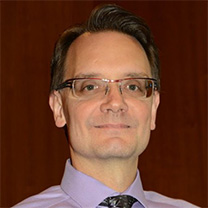

Scott Mansfield
Standardization Researcher, Development Unit Network Products,
Ericsson
Scott Mansfield is a Standardization Researcher in Ericsson’s Development Unit Network Products group. Scott has been Ericsson’s MEF Coordinator for the past 10 years and is also holds leadership positions in the Internet Society, the IETF, and the ITU-T.
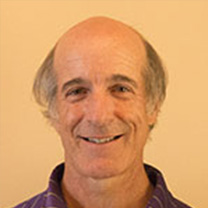

Steve Haddock
Editor at Large,
MEF
During his professional life, Steve has demonstrated his ability to lead and to contribute effectively to our industry whether during his leadership role at the IEEE and/or his leadership role at Extreme Networks.
His valuable contribution to MEF is just another milestone in his successful profile. His dedication, technical expertise and leadership skill are next to none. As an independent consultant for MEF, Steve continues to play a pivotal role in guiding the MEF specifications, especially when it comes to the IEEE 802 impact on the specifications. Steve has also edited multiple documents, including MEF 45.
Steve’s long contribution to the industry deserves the recognition by MEF. He made a difference to the industry, and he continues to do so.
Key Highlight of Stephen’s professional profile:
Former Vice President and Chief Technology Officer, Extreme Networks
Former Chair, IEEE 802.1 Interworking Task Group
Former Vice-Chair, IEEE 802.3ae 10Gb/s Ethernet Task Force
MEF Editor, Multi-CEN L2CP (MEF 45), CoS IA (MEF 23.2)
MEF Ad hoc Leader, Bandwidth Profile
Chair: IEEE 802.3ad Link Aggregation
Co-Editor: IEEE 802.3z Gigabit Ethernet, IEEE 802.1ad Provider Bridging, IEEE 802.1ah Provider Backbone Bridging
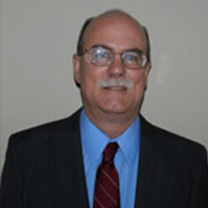

Eric Puetz
Director, Standards and Industry Alliances,
AT&T Labs
Eric has been in the data communications industry for over 30 years. He is currently responsible for strategic standards in the areas of Ethernet, Cloud Services, SDN, and NFV. He has led organizations responsible for development and deployment of emerging services (e.g. Ethernet, IPTV).
Eric’s many contributions to the MEF have been in both the certification and marketing teams. He is currently co-chair of the certification committee responsible for the development of the MEF 2.0 certification program. Some current areas AT&T heavily supports/leads are Mobile Backhaul, Certification, Multi-Network Layer 2 Control Protocol, and Virtual NID.
Eric’s background in the development of standards strategies brings a strong practical focus in order to fulfill the goal of “Accelerating the Adoption of Carrier Ethernet”.
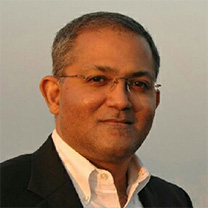

Raghu Ranganathan
Principal, Office of CTO,
Ciena
Raghu is co-chair of MEF Technical Committee and has been editor of multiple specifications – MEF 6.2 (Ethernet Service Definitions) and MEF 22.1 (Mobile Backhaul Implementation Agreement). Additionally, as an elected Board member of MEF since 2011, he has used the extraordinary opportunity to be an active leader in defining MEF’s future and educating the networking community across the world on MEF’s excellent work on Carrier Ethernet Services & Networks. Raghu has been with Ciena since 1998.
He is a Senior Member of IEEE with many publications and patents in addition to conference presentations. He has also been active in the industry as member of various conference committees including as chair.


Ralph Santitoro
Director of Solutions Architecture,
Fujitsu Network Communications
Ralph has developed advanced technology products and services for consumers, SMBs, enterprises and communications service providers at Fujitsu, IBM, Nortel, and four technology startups – three of which he was a founding member. At Fujitsu, Ralph is developing solutions that virtualize and orchestrate network functions to transform the creation, delivery and consumption of on-demand network-based services.
A founding member and leading contributor to all MEF committees, he was editor of MEF 5 and 6 and contributed to MEF 1/5/6/10/22/33/50 technical specifications. He authored the MEF’s Ethernet Services primer and was editor and co-author of the MEF’s Carrier Ethernet Security Best Practice, Carrier Ethernet for Private Cloud Service Delivery papers and most recently, the Third Network Vision and Strategy paper. Over the years, Ralph has given keynotes and presented on panels sessions and workshops at industry events on many MEF topics including the MEF’s Third Network vision to deliver Network as a Service at the GEN14 conference. Ralph created the MEF’s highly successful Carrier Ethernet Professional Certification Program, developed both MEF-CECP and MEF-CECP 2.0 exams, and co-authored the industry’s first MEF-CECP exam study guide. Ralph regularly contributes to architecture, service orchestration, service activation and configuration APIs, SDN, NFV, and information/data modeling work in Technical, Marketing and Service Operations Committees. Ralph is a longstanding member of the MEF Board of Directors and is currently a Co-chair of the MEF Global Marketing Committee.
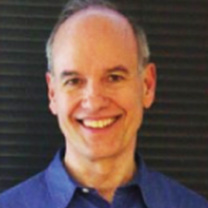

Bill Bjorkman
Principal Consultant,
International Carrier Ethernet Solutions
Bill was the second recipient of the MEF Distinguished Fellow Award. He is Principal Consultant for International Carrier Ethernet Solutions (ICES) in Germany, and is one of the leaders in the deployment of next generation Ethernet services and Carrier Ethernet networks. Bill has over twenty years of experience in high-speed data communications networks, has been published numerous times and holds seven patents in the area of Carrier Ethernet.
Previously, Bill worked for 10 years as Senior Ethernet Architect at Verizon Communications, where he designed their Carrier Ethernet services and led the development of the next generation access and core networks. He joined the MEF in 2002 as Verizon’s principal representative.
At the MEF, Bill was co-chair of the MEF Technical Committee, leading the technical development of MEF specifications for seven years. He was editor of three MEF technical specifications – MEF 6 (Ethernet Services Definitions), MEF 6.1 (Ethernet Services Definitions, Phase 2) and MEF 10.2.1 (performance metric amendment to MEF 10.2); and is currently editor of the OVC Services project. As a longstanding key technical contributor to MEF, he also participated in many projects, including vNID, Carrier Ethernet Classes of Service, Mobile Backhaul, UNI Types 1 and 2, ENNI, several ATS’s, Service OAM FM and PM and Service Activation projects, and led the development of MEF’s first ‘Best Practices’ paper – Multi CoS for Mobile Backhaul.
Bill stepped down as co-chair of the MEF Technical Committee in 2012. He currently consults in the areas of data networks and services, standards development and Carrier Ethernet training.
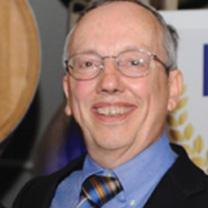

Dr. Bob Klessig
Editor at Large,
MEF
Dr. Bob Klessig, the MEF’s first recipient of the Distinguished Fellow Award, has more than 30 years of technology experience regarding data networking protocols for local area networks (LAN) and wide area networks (WAN) and now serves as the MEF’s Editor at Large for technical specifications.
Bob was the founder of Telseon, an Ethernet Service Provider, prior to joining the MEF. He has held positions at 3COM, Bellcore and Bell Laboratories where his responsibilities included business development, standards definition, and data network architecture for Switch Multi-megabit Data Service (SMDS), Asynchronous Transfer Mode (ATM), and metropolitan area Ethernet Service, and at Cisco, where he led the definition of Metro Ethernet Services and Architecture.
After retiring from Cisco, Bob continued to serve as MEF Editor at Large, and has made significant contributions to the MEF’s technical development being an editor of eleven MEF specifications. Most notably, he was the editor of MEF 1 (Ethernet Service Attributes), which has been at the heart of the MEF Technical specifications. He was also editor on specifications MEF 10-10.2, MEF 26, 26.0.1, 26.0.2, 26.0.3, 26.1, and has made and participated in over 700 technical contributions. As a long-time contributor to the MEF and former member of the MEF Board of Directors, he has led, reviewed, commented and influenced countless projects.
Bob has a BS Engineering degree from Case Western Reserve University (formerly Case Institute of Technology), a MS Electrical Engineering degree, and a Ph.D. Electrical Engineering and Computer Sciences degree—the latter two degrees from the University of California, Berkeley. His Ph.D. thesis focused on the theory of Nonlinear Optimization Algorithms. He received two faculty appointments in EECS at Berkeley.

